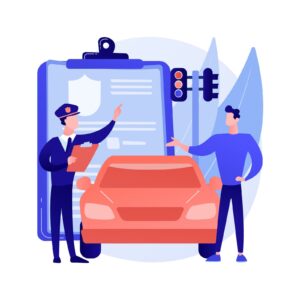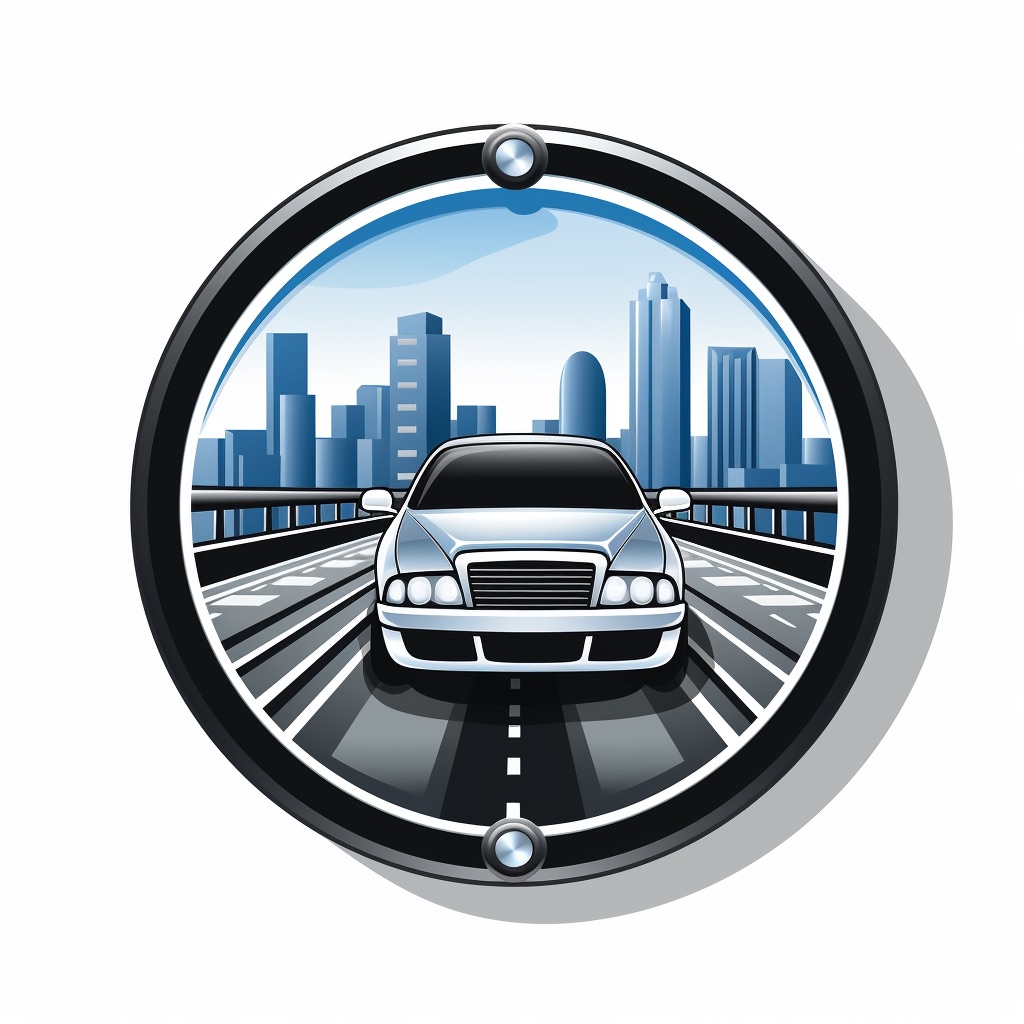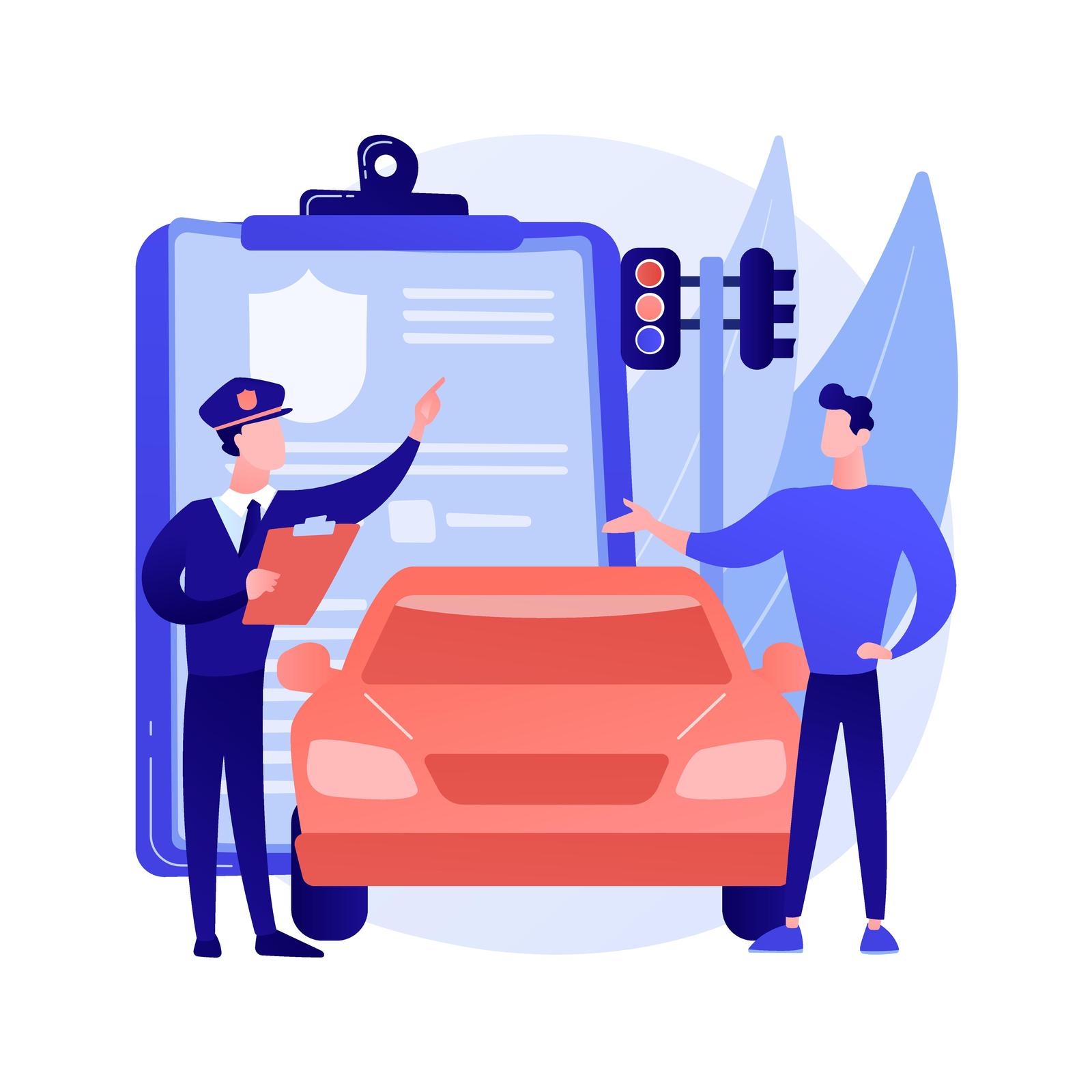A speeding ticket is a form of a citation issued by law enforcement officers to drivers who exceed the posted speed limit. While rules regarding speed limits vary by location, the basic idea is to ensure that drivers operate vehicles at safe speeds for the given conditions. When a driver exceeds this safe speed, they risk not only their own safety but also that of passengers and other drivers on the road. Getting a speeding ticket can be frustrating and inconvenient for any driver. Receiving and paying off a ticket involves time, money, and potentially even court appearances. However, it’s important to remember that traffic laws are in place for a good reason – to keep everyone safe on the road.
Following Traffic Rules and Regulations
Traffic rules and regulations exist to keep people safe while traveling on roads or highways. These regulations include speed limits, lane use requirements, stop signs, traffic signals, and pedestrian crosswalks. Sadly it’s not uncommon for someone to take them granted especially if they have been driving without incident for many years. While it might seem harmless enough to shave a few minutes off your commute by breaking some traffic laws here or there, doing so can have serious consequences. It can lead to costly tickets and fines and cause accidents, which may lead to injuries or even death.
Personal Experience with Getting A First Speeding Ticket
I still remember my first speeding ticket like yesterday – although it was over a decade ago now! I was driving along my usual route during my morning commute when I saw flashing lights in my rear view mirror. My stomach sank as I realized what was happening: I had been caught going over the speed limit. The encounter with the officer wasn’t particularly pleasant but he explained why he pulled me over and handed me the ticket. The feeling of embarrassment, frustration, and guilt is one I’ll never forget. That first speeding ticket was a costly and stressful experience, but it also taught me an important lesson about the importance of following traffic laws. While getting a speeding ticket might seem like a minor inconvenience, it’s essential to keep in mind the bigger picture – driving safely on roads is for everyone’s well-being. Speeding endangers everyone on the road including yourself.

The Incident
I received my first speeding ticket on a warm summer day in August. I was driving down the main road in my town on my way to work. The sun was shining and there wasn’t a cloud in sight. It seemed like it was just going to be an ordinary day. As I approached a traffic light, it turned yellow, and I pressed down on the gas pedal to make it through before it turned red. Unfortunately, there was a police officer parked nearby who saw me and pulled me over. It happened at around 9:00 am in the morning. The location of the incident was at a busy intersection near downtown where many drivers pass daily on their way to work or school. Due to its high traffic volume, law enforcement officers were often patrolling this area.
Speed Limit, Actual Speed, Reason for Speeding
The speed limit on this particular road was 35 miles per hour (mph), but I was driving at 50 mph according to the officer’s radar gun. My car had a powerful engine and could easily go over that speed limit without me realizing it. I knew that what I did was wrong and that there were no excuses for breaking traffic laws; however, my mind was preoccupied with getting to work on time as I had an important meeting scheduled for that day.
Encounter with Law Enforcement Officer
After realizing that I had been caught by law enforcement officials due to my speeding violation, anxiety set in as thoughts raced through my mind about what would happen next. When asked by the officer if I knew why he pulled me over, I immediately confessed that I had been speeding and explained why. The officer then proceeded to ask for my driver’s license and registration information. The officer was polite throughout the interaction, but stern in his tone. He explained the penalties for breaking traffic laws and safety concerns that could have arisen from my driving at such high speed. I was issued a citation, and after a brief conversation, I was allowed to continue on my way. In hindsight, the encounter with the law enforcement officer taught me that respecting and complying with laws is important to avoid unnecessary legal issues or harmful consequences.
Consequences
Fine, Points on the License
Getting pulled over for a speeding ticket may seem like a small issue, but the immediate consequences can be quite significant. The first consequence is the fine that needs to be paid. Based on the severity of the offense and location, fines can range from a few hundred dollars to several thousand dollars. In addition to paying the fine, some points will be added to your license. The number of points varies by state and by how fast you were going over the speed limit but expect anywhere from 2-6 points on your driver’s license. The accumulation of too many points on your license can lead to additional penalties such as increased insurance rates or even suspension of your driver’s license. This is why paying attention to your driving habits and following traffic rules and regulations is important.
Long-Term Consequences: Increased Insurance Rates, Potential Impact on Employment Opportunities
The long-term consequences of receiving a speeding ticket are not limited to just increased insurance rates or potential loss of driving privileges. In some cases, receiving a speeding ticket may even impact employment opportunities. Many employers conduct background checks before hiring new employees and consider traffic violations as part of their review process. Another long-term consequence is increased insurance rates. A single speeding ticket can increase premium rates for several years after the incident occurred. This increase in premium rate could cost hundreds if not thousands of dollars over time. It is important for anyone who receives a first speeding ticket to realize that it could have significant long-term consequences beyond just paying the immediate fine.
Emotional Impact: Guilt, Embarrassment
Aside from financial impacts, receiving a first speeding ticket can also have emotional impacts such as guilt or embarrassment. It is never easy knowing that you broke traffic rules and regulations and put yourself and others at risk by speeding. Feeling guilty or embarrassed about receiving a speeding ticket is normal, but it is important not to dwell on these emotions for too long. Instead, take the incident as a learning opportunity to become a better driver in the future. Remember that everyone makes mistakes, and how you learn from them matters the most.
Obeying Traffic Rules and Regulations
Traffic rules and regulations are implemented to ensure all road users’ safety. Speed limits, for example, are established to reduce the risk of road accidents. Ignoring these rules and regulations puts you at risk and endangers the lives of everyone around you. Getting a speeding ticket is a clear indication that you have violated these rules, but it’s important to remember that it’s not just about the consequences – there are real-life implications to dangerous driving. When we get behind the wheel, we take on a responsibility to ourselves, our passengers and other road users. Failing to follow traffic rules can have tragic results – accidents can cause serious injury or even death. Considering this fact alone, it becomes obvious that obeying traffic rules is vital. This includes following speed limits and traffic signals, wearing seat belts and ensuring proper maintenance of your vehicle.
Consequences of Breaking the Law
The consequences of breaking the traffic laws can be severe – both immediate and long-term. Immediate consequences include receiving a fine from law enforcement officers or having points added to your driver’s license. However, there are also long-term effects for violating traffic laws such as increased insurance rates or even job loss in some cases where driving is required for employment. Additionally, breaking traffic laws can lead to a social stigma which may affect future opportunities as employers may view reckless driving behavior as indicative of poor judgment skills overall.
Ways to Prevent Future Incidents
One way to prevent future incidents is by taking extra precautions while on the road. This could mean installing apps that track your speed while driving or avoiding high-risk situations like driving while distracted by cell phones or music players. Another key way to avoid getting a first speeding ticket is ensuring your car insurance policy covers any potential damages to your car or passengers in the event of an accident. This way, you’ll be protected even if you do receive a ticket for speeding or other traffic violations. Perhaps most importantly, though, is to remember that driving safely isn’t just about obeying laws and regulations – it’s about being aware of other drivers on the road and taking steps to ensure your own safety and the safety of other road users. By practicing responsible driving habits and watching for potential road hazards, you can help reduce the number of accidents and keep yourself safe while driving.
Reflection on Personal Experience and Lessons Learned
Confronting the Truth About My Actions
After receiving my first speeding ticket, I was initially angry and frustrated. However, as time passed, I began to reflect on my actions and the consequences that followed. Not only was I forced to pay a hefty fine, but I also had points added to my license that would impact my insurance rates for years to come. It was a harsh reality check for me that made me confront the truth about my actions. I realized that I was putting myself and others at risk by exceeding the speed limit. It wasn’t just about getting caught or avoiding punishment – it was about being responsible for my own safety and those around me. This experience taught me to adjust my driving behavior accordingly and prioritize safety above all else.
Taking Responsibility: The Road to Self-Improvement
Getting a first speeding ticket can be a humbling experience, but it can also be an opportunity for self-improvement. Instead of dwelling on regret or frustration, I took responsibility for my actions and made necessary changes in my driving habits. For example, I started paying more attention to speed limit signs and using cruise control when possible. Additionally, I made sure to give myself plenty of time to get where I needed to go so that there would be no pressure or temptation to speed.
Advice for Others To Avoid Getting A First Speeding Ticket
Patience
One of the easiest ways to avoid getting a first speeding ticket is simply by being patient while driving. Many people feel rushed when they are behind the wheel because they are running late or have somewhere important they need to be – but this kind of thinking can lead you down a dangerous path. By giving yourself enough time to get where you need to go and avoiding distractions, you can reduce the temptation to speed. Additionally, being patient means always driving defensively and being aware of your surroundings. This simple change in mindset can help prevent accidents or other incidents that could result in a ticket.
Staying Alert for Law Enforcement
Another way to avoid getting a first speeding ticket is by staying alert for law enforcement officers while driving. This means paying attention to speed limit signs, avoiding high-risk areas (like school zones or construction sites), and watching police cars. If you do happen to see an officer while driving, make sure to slow down immediately and follow all traffic laws. By staying vigilant and obeying the rules of the road, you can avoid getting pulled over and potentially receiving a ticket.
Investing in Technology
Investing in modern technology like GPS systems or speed limit detectors can help prevent speeding tickets. These devices are designed to alert drivers when they are about to exceed the speed limit, helping them stay within legal limits at all times. While these products can be costly at first glance, they are often worth it in terms of long-term savings on insurance rates and potential fines. By taking advantage of this kind of technology, you can avoid getting a first speeding ticket and improve your overall safety as a driver.

